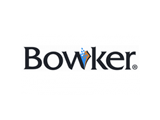
Exponential growth in assignments has led to more than 7 million names receiving the ISO-certified International Standard Name Identifier known as “ISNI”. Published in early 2012, the standard applies a unique 16-digit code to public identities, providing a single identifier that can be leveraged across many applications, syncing alternate or disparate spellings of the same name, and eliminating confusion when names are alike. Bowker, an affiliated business of ProQuest and a registration agency for the standard, tracks assignments and usage of ISNIs.
“The rapid uptake reflects the standard’s ability to simplify the process of identification,” said Beat Barblan, Bowker’s Director of Identifier Services and Treasurer of the ISNI International Agency. “It’s an authoritative way to ensure accuracy when organizations share information. With an ISNI, we know we are referring to the correct Sue Johnson, Dan Brown, Rich Cohen, Stephen Dubner, or Stephen King.”
The ISNI International Agency — a worldwide group of organizations that serve researchers, rights management organizations, authors, musicians, and other public contributors — created the standard to disambiguate names. Once an ISNI is assigned by a registration agency, it is shared across the global digital information industry, enabling organizations to apply it to content held in their databases by or about that party. The ISNI then acts as a link for data. So, for example, information about Brian Cox, the physicist and musician, can be linked across research he has done at CERN and music database entries for his former band D:Ream.
Users tapping into any of the organizations that use ISNIs will need only a name and just enough background data (such as a birth date or book title) to zero in on the correct identity. ISNIs are especially critical for rights management, accurate royalty payments, and cross-domain linking.
Currently, there are more than 700,000 researchers whose names have been assigned ISNIs and 480,000 institutions with ISNI assignments. “These numbers are expected to grow significantly, as organizations such as Macmillan’s Digital Science, LaTrobe University, and the National Library of New Zealand have joined the ISNI International Agency as members,” said Laura Dawson, Product Manager for Identifier Services at Bowker.
Organizations and individuals can apply for an ISNI for any public identity – real or fictional – through a registration agency, such as Bowker. To apply for ISNIs through Bowker or obtain more information, contact Laura Dawson, Product Manager for Identifier Services, at laura.dawson@bowker.com. Use ISNI’s free lookup interface at http://www.isni.org/search.



























